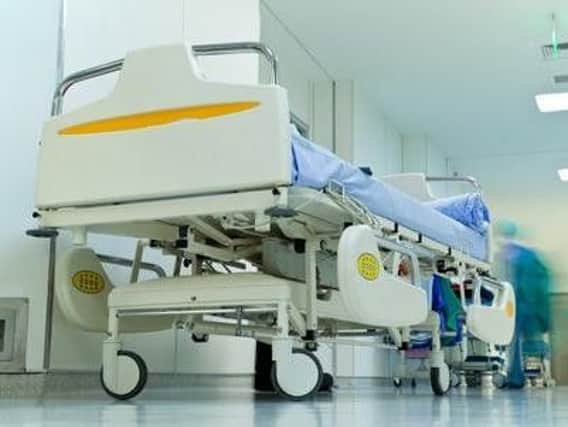15% increase in numbers of seriously ill attending Accident & Emergency departments


The statement on the scale of winter pressures claims the "sharp rise helps explain the sustained pressures that all EDs have been under since the holiday period".
"It underlines the fact that winter pressures on our health and social care system are being driven primarily by patients presenting with serious health issues, many of them frail and elderly. The 15% increase involves patients triaged in the most serious categories (1&2)," the statement adds.
Advertisement
Hide AdAdvertisement
Hide AdAccording to the HSCB statement: "While the overall number of ED attendances has increased by 24% in the last five years, the number of patients in these more serious triage categories has increased by 78%.
"Figures previously published by the Health and Social Care Board relating to the period 24 December to 1 January showed a 4% increase in ED attendances compared to the same time last year - and 14% more than two years ago. Updated figures collated by the Health and Social Board relating to the period 24 December 2017 to 15 January 2018 reveal:
* Overall attendances at EDs in this period totalled 39,135 – an increase of 5% (1780) on the same period in 2016/17, and an increase of 9% (3365) on the same period in 2015/16.
* Regrettably, 2848 of these 39,135 patients waited over 12 hours - an increase of 1659 on the same period last year. The Board recognises the distress and frustration such delays cause for patients and their families, and apologises to these patients on behalf of the HSC system.
Advertisement
Hide AdAdvertisement
Hide Ad* In the week 5-11 January, a total of 275 elective operations were postponed by Trusts as a result of the ongoing unscheduled care pressures, and the need to prioritise beds for the most urgent patients. Trusts will be seeking to rearrange these operations as soon as possible."
The statement added that in anticipation of the pressures being faced at this time of year, "all Trusts had arranged a reduced level of elective operations in the first half of January".
"Given the ongoing unscheduled care pressures across all hospitals, this reduced level of elective activity has been extended to the end of January, although each Trust will review the position on a specialty by specialty basis," added the statement."This is an appropriate measure as part of normal escalation plans to respond to the continued unscheduled care pressures and to ensure the needs of the most urgent patients are prioritised. "It also reduces the number of operations that need to be postponed at short notice at times of heightened unscheduled care pressures. Anyone who has an operation scheduled in January should expect this to proceed unless they are contacted directly by their local Health and Social Care Trust advising it has been postponed."
A HSCB spokesperson said: “Staff are continuing to work tirelessly to ensure that patients receive the care they need as quickly and safely as possible, and we would like to thank all the staff right across health and social care – in primary care, in hospitals and in the community, who continue to show the highest levels of dedication and professionalism in caring for patients at this challenging time.
Advertisement
Hide AdAdvertisement
Hide AdThe public are reminded that as usual they should only attend hospital Emergency Departments for urgent and life threatening conditions only. There are a range of alternative services that people can access if they do not need emergency care. These include using the online A-Z symptom checker, seeking advice from a pharmacist, going to a Minor Injury Unit, or contacting a GP or the GP Out of Hours services (if their medical condition can’t wait until the GP surgery reopens). People can also check online for the average waiting times in their local Emergency Department.”